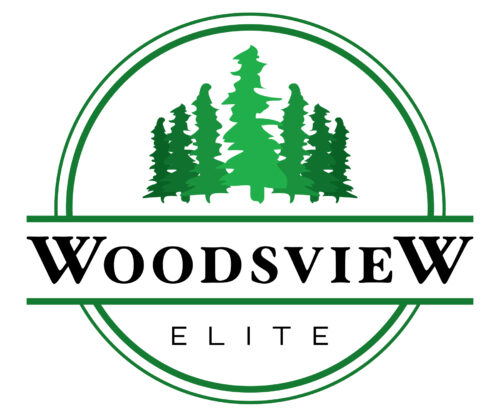The Art of Negotiation: Insider Tips from a Real Estate Professional

Hello, everyone! Tyler Vass here and welcome to this blog on understanding the power dynamics of real estate negotiations. Whether you’re a buyer, seller, or agent, navigating negotiations can be a challenging experience, especially when dealing with power imbalances. As a buyer, you may be at a disadvantage in a seller’s market, while sellers may need help to balance showcasing their property’s value with reasonable negotiations. Real estate agents play a critical role in balancing power dynamics by advocating for their clients while fostering cooperation between parties. In this blog, we’ll explore effective communication strategies, building rapport, and overcoming obstacles to help you navigate power dynamics successfully and secure successful real estate transactions.
Understanding the Power Dynamics: Navigating Negotiations as a Buyer, Seller, or Agent
When it comes to real estate transactions, understanding the nuances of power dynamics can make all the difference in effectively navigating negotiations, whether you’re a buyer, seller, or agent. Power imbalances can significantly impact the outcome of negotiations, determining who holds the upper hand in decision-making processes. As a buyer, it’s essential to recognize the seller’s position of power, especially in a seller’s market. This underscores the importance of making strategic offers and being flexible. On the other hand, sellers must leverage their advantage by showcasing the value of their property while remaining open to reasonable negotiations. Real estate agents, too, play a critical role in balancing power dynamics by advocating for their clients while fostering cooperation between parties.
To achieve favourable outcomes, it’s essential to identify power dynamics and respond with tailored negotiation strategies that maximize your position without undermining the negotiation process’s integrity. Building rapport, conducting thorough market research, and maintaining clear communication are crucial in navigating power dynamics and securing successful real estate transactions.
Effective Communication Strategies: Building Rapport and Overcoming Obstacles
Effective communication is the cornerstone of successful negotiations in real estate transactions, promoting understanding, trust, and cooperation between parties. Building a foundation of trust and mutual respect through rapport with the other party is crucial to establishing productive discussions and smooth negotiations. To achieve this, active listening, empathy, and a genuine interest in the other party’s needs and concerns are essential. Additionally, maintaining open and transparent communication channels, whether through face-to-face meetings, phone calls, or emails, can help clarify expectations and prevent misunderstandings. However, common communication barriers such as misinterpretation, emotional tensions, and lack of clarity can hinder progress in negotiations. Overcoming these obstacles requires patience, empathy, and a willingness to address concerns openly. Strategies such as paraphrasing to ensure understanding, acknowledging emotions, and reframing issues to find common ground can help navigate communication barriers and pave the way for successful real estate negotiations.
Negotiation Tactics and Counter-Tactics: Tools of the Trade
In the world of real estate negotiations, mastering negotiation tactics is akin to wielding a powerful toolset. Professionals often employ strategies like anchoring, setting an initial offer or reference point to influence subsequent negotiations. Mirroring involves subtly mimicking the other party’s body language or speech patterns to establish rapport and encourage cooperation. Framing, on the other hand, involves shaping the narrative or context of the negotiation to influence perceptions and outcomes. For instance, a seller might anchor negotiations by setting a higher listing price, while a buyer may mirror the seller’s language to build trust.
However, adept negotiators must also be prepared to respond to such tactics with counter-strategies. Buyers could counter a high anchor price with thorough market research or by presenting comparable sales data. At the same time, sellers might reframe offers in terms of overall value rather than focusing solely on price. Real estate professionals can navigate negotiations effectively by understanding and employing these negotiation tactics and counter-tactics to achieve optimal outcomes for their clients.
Win-Win Solutions: Creating Value and Closing Deals
In the world of real estate, the idea of win-win negotiations is more than just a romantic notion; it’s a practical approach that can lead to successful outcomes for everyone involved. Adopting this mindset means recognizing that creating value and promoting mutual satisfaction is critical to closing deals and maintaining positive relationships over the long term. Negotiation strategies that can help identify and create value include:
- Understanding each party’s underlying interests and priorities.
- Exploring creative solutions that meet the needs of both sides.
- Emphasizing the benefits and opportunities that come with the transaction.
Negotiators can often uncover win-win solutions beyond a simple exchange of goods or services by actively seeking common ground and considering alternative options. Ultimately, reaching mutually beneficial agreements requires open communication, flexibility, and a willingness to collaborate in good faith. Real estate professionals can close deals successfully while building trust and goodwill among their clients and counterparts by prioritizing the interests of all parties involved and working towards shared goals.
Mastering Negotiation Dynamics
In conclusion, navigating power dynamics in real estate negotiations requires a careful balance of strategy and practical communication. As a buyer, seller, or agent, recognizing power imbalances and responding with tailored negotiation tactics can help maximize your position without compromising the negotiation process’s integrity. Building rapport, conducting thorough market research, and maintaining clear communication channels are essential in establishing trust and fostering cooperation between parties. Successful real estate transactions can be achieved by overcoming communication barriers with patience, empathy, and effective communication strategies such as active listening and reframing issues. We hope this blog has provided valuable insights and strategies to navigate power dynamics and achieve favourable outcomes in your next real estate negotiation.
Connect With Me!
I am here to make your real estate dreams come true! Stay tuned for more tips and insights on how to succeed in the real estate market in Stouffville and the Greater Toronto Area. For more updated @vass.sells content and valuable information, follow me on Instagram. Let’s connect and embark on this exciting real estate journey together!
